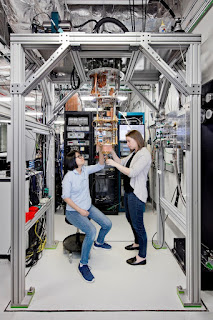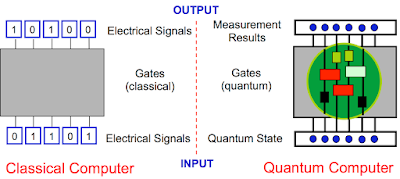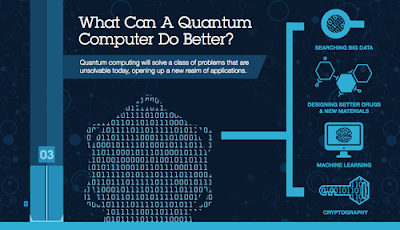Twitter Feed
Why the Cloud? Processing, Exploitation and Dissemination
So why is the intelligence community so interested in cloud computing? Three letters: PED (Processing, Exploitation, Dissemination). Take these two real life examples from the publishing industry. Jim Staten of…
World Summit of Cloud Computing: “Enterprise Cloud Computing” work group
To leverage attendees of the World Summit of Cloud Computing, a kick-off meeting of the “Enterprise Cloud Computing” work group will be held near Tel Aviv, Israel on December 3,…
Cloud Package Management
In his post “Missing in the Cloud: package management“, Dave Rosenberg highlights a critical issue in the adoption of cloud computing by government agencies. “I dare say that a standard…
PlugIntoTheCloud.com
Information Week has just launched PlugIntoTheCloud.com as their cloud computing destination. In his Non Linear Thinking blog, Bill Martin calls it a movement aimed at “providing a source and forum…
Is the cloud computing hype bad?
From Gartner “Why a little cloud hype might be useful“: “It’s too simplistic to say cloud hype is bad . If we are technically expert is might irritate us with…
Stop the FUD (Fear, Uncertainty and Doubt) !!
Dan Morrill! Count me in !! In his excellent article, “Cloud Computing is Scary – But the FUD Has to Stop“, Dan makes some excellent points: It is time to…
IBM, Microsoft and Google
On October 6th, IBM launched their cloud services initiative. This is a: “[C]ompany-wide initiative that extends its traditional software delivery model toward a mix of on-premise and cloud computing applications…
Government in the Cloud
Back in mid-September, there was quite a thread in the Google Cloud Computing Group on the use of cloud computing by the federal government. Some of the interesting comments were:…
CloudCamp Partners With SOA-R !!
I’m proud to announce that the final SOA-R Cloud Computing Education Event will be held in collaboration with CloudCamp. Now dubbed CloudCamp:Federal, the event will be held as an “unconference” to help…
Federal Cloud Computing Wiki
With the fast growing interest in cloud computing, the Federal Government community has established a Federal Cloud Computing Wiki. This wiki is managed by Dr. Brand Niemann, Senior Enterprise Architect…
- The release of a new API (Application Program Interface) for the IBM Quantum Experience that enables developers and programmers to begin building interfaces between its existing five quantum bit (qubit) cloud-based quantum computer and classical computers, without needing a deep background in quantum physics.
- The release of an upgraded simulator on the IBM Quantum Experience that can model circuits with up to 20 qubits. In the first half of 2017, IBM plans to release a full SDK (Software Development Kit) on the IBM Quantum Experience for users to build simple quantum applications and software programs.
The IBM Quantum Experience enables anyone to connect to IBM’s quantum processor via the IBM Cloud, to run algorithms and experiments, work with the individual quantum bits, and explore tutorials and simulations around what might be possible with quantum computing. Since its launch less than a year ago, about 40,000 users have run over 275,000 experiments on the IBM Quantum Experience. It has become an enablement tool for scientists in over 100 countries and, to date, 15 third-party research papers have been posted to arXiv with five published in leading journals based on experiments run on the Quantum Experience.
 The broad availability of quantum computing capability could prove to be a significant blow to current data encryption practices. In 2015 the US National Security Agency actually advised US agencies and businesses to prepare for a time when the cryptography protecting virtually all e-mail, medical and financial records, and online transactions would be rendered obsolete by quantum computing. The US National Institute for Standards and Technology (NIST) is also running a competition to spur work on post-quantum algorithms.
The broad availability of quantum computing capability could prove to be a significant blow to current data encryption practices. In 2015 the US National Security Agency actually advised US agencies and businesses to prepare for a time when the cryptography protecting virtually all e-mail, medical and financial records, and online transactions would be rendered obsolete by quantum computing. The US National Institute for Standards and Technology (NIST) is also running a competition to spur work on post-quantum algorithms. - Drug and Materials Discovery: Untangling the complexity of molecular and chemical interactions leading to the discovery of new medicines and materials;
- Supply Chain & Logistics: Finding the optimal path across global systems of systems for ultra-efficient logistics and supply chains, such as optimizing fleet operations for deliveries during the holiday season;
- Financial Services: Finding new ways to model financial data and isolating key global risk factors to make better investments;
- Artificial Intelligence: Making facets of artificial intelligence such as machine learning much more powerful when data sets can be too big such as searching images or video; or
- Cloud Security: Making cloud computing more secure by using the laws of quantum physics to enhance private data safety.
This content is being syndicated through multiple channels. The opinions expressed are solely those of the author and do not represent the views of GovCloud Network, GovCloud Network Partners or any other corporation or organization.
( Thank you. If you enjoyed this article, get free updates by email or RSS – © Copyright Kevin L. Jackson 2017)
Cloud Computing
- CPUcoin Expands CPU/GPU Power Sharing with Cudo Ventures Enterprise Network Partnership
- CPUcoin Expands CPU/GPU Power Sharing with Cudo Ventures Enterprise Network Partnership
- Route1 Announces Q2 2019 Financial Results
- CPUcoin Expands CPU/GPU Power Sharing with Cudo Ventures Enterprise Network Partnership
- ChannelAdvisor to Present at the D.A. Davidson 18th Annual Technology Conference
Cybersecurity
- Route1 Announces Q2 2019 Financial Results
- FIRST US BANCSHARES, INC. DECLARES CASH DIVIDEND
- Business Continuity Management Planning Solution Market is Expected to Grow ~ US$ 1.6 Bn by the end of 2029 - PMR
- Atos delivers Quantum-Learning-as-a-Service to Xofia to enable artificial intelligence solutions
- New Ares IoT Botnet discovered on Android OS based Set-Top Boxes




